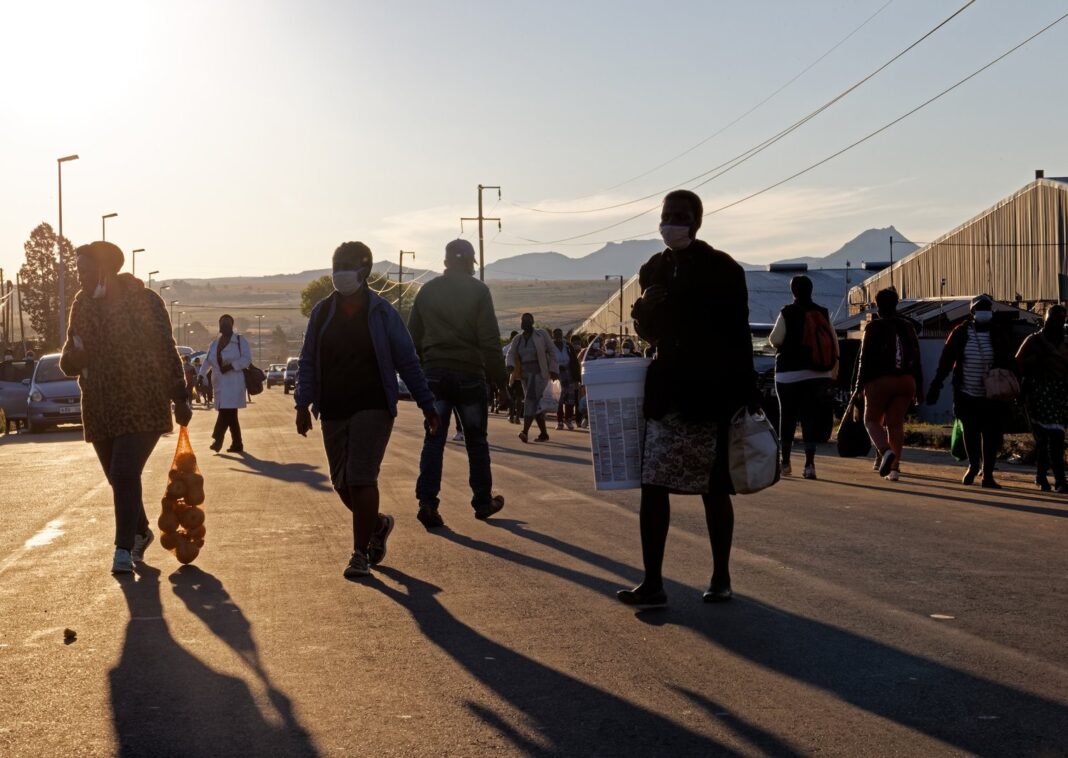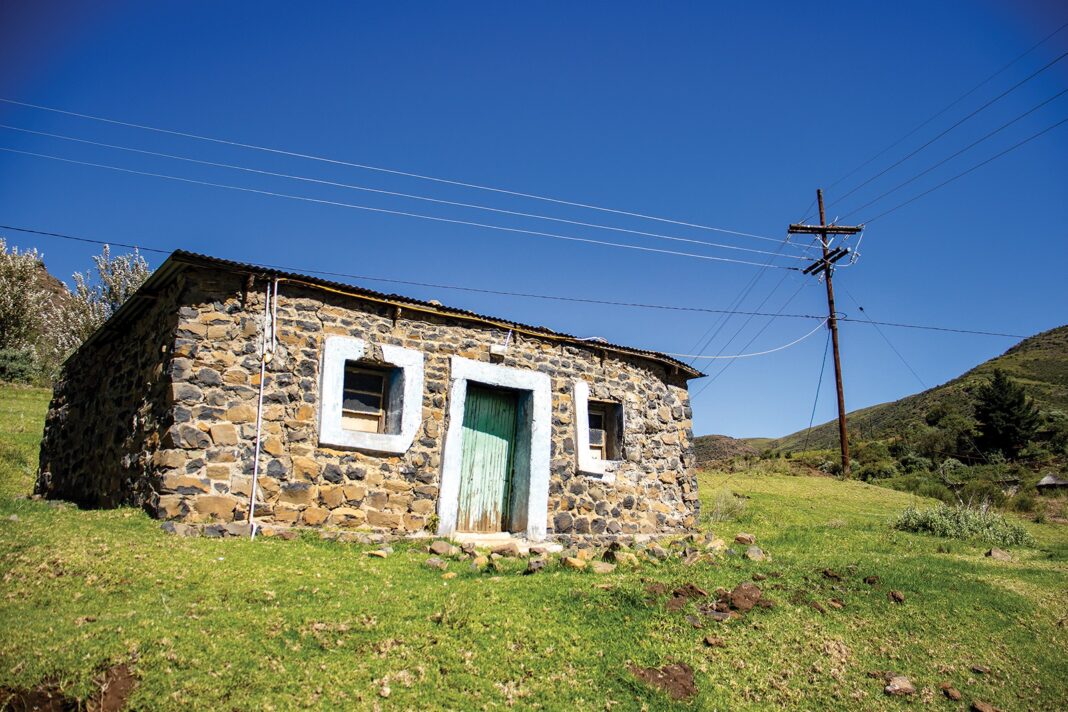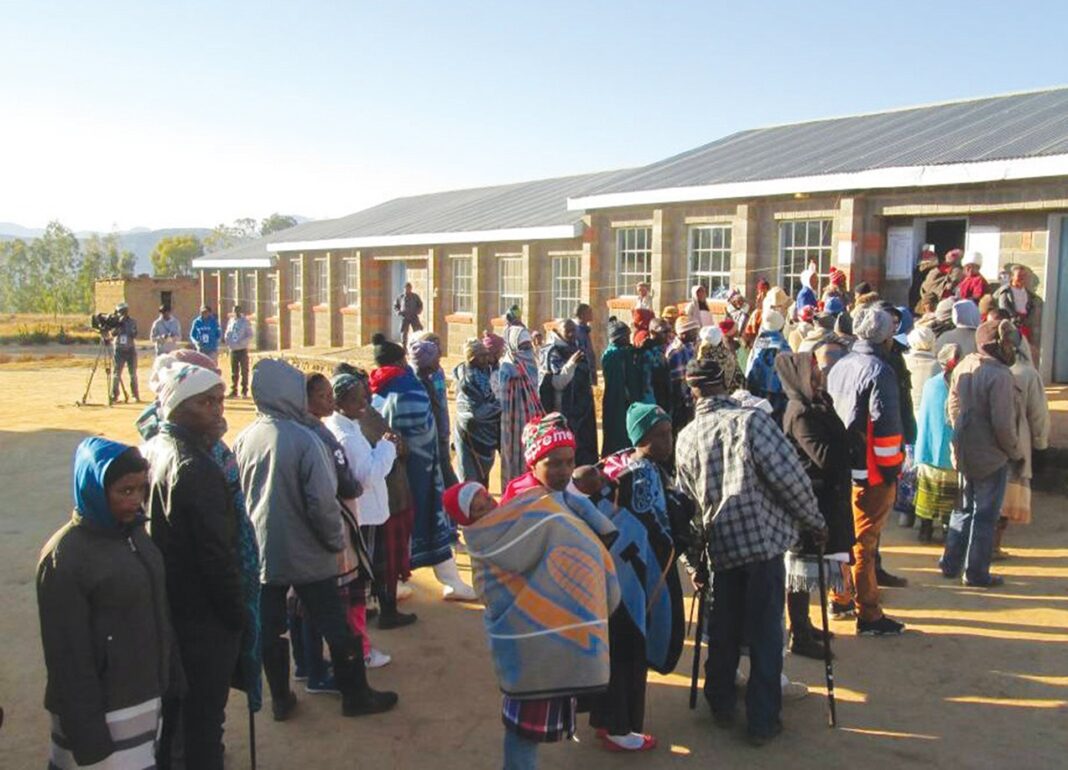By ‘Majirata Latela
The 3700 workers at Formosa Textile factory are to be ‘laid off’ for a period spanning three months without pay as they will be forced to go for an unpaid ‘short time’ from October this year.
The news was broken by Formosa Textile workers at this week’s press conference where they pleaded with a post- election government to ramp up efforts to support them financially.
The country goes for general polls on October 7.
Speaking at the press conference, ‘Mantšabeng Nthako working for another factory under Formosa Textile, Global, said they were highly perturbed as they face financial constraints in the three-month period of staying home.
She said during this time the workers do not know where they will get money for food, school fees and rent among other priorities.
“We therefore urge the government to be aware that many factories are closing down while others are taking workers to unpaid ‘short time’. Of the 3700 workers who are at the risk of going for a temporary unpaid break from work, most of them are breadwinners in their families and that means all the people who depend on them will suffer during this time.
“Since the closure of factories due to Covid-19 we have not heard the government making a speech and admitting that the thousands of factory workers are losing their jobs. We therefore plead with the government that will be sworn in two weeks from now to address the challenges that are facing factory workers.
“We also plead with the government to help us financially like it did with one of the factories that experience this kind of challenge in the past years. We plead to also be considered as factory workers when enacting laws, especially the labour laws,” Nthako cried out.
Another factory worker, ‘Masamuel Thoahlane added that workers have been informed that from October 10 2022 workers at Formosa Textile in the department of cutting room will be on short time until January 4 2023. This will be followed by sewing department from October 26 2022 to January 9 2023.
She added that from October 30 2022 washing room department will follow the route as well with the laser section to be the next. The last department on the line of going for a short time will be the parking department which will go for a short time in November 24 2022 to February 24 2023.
“We are feeling abandoned as we think that the government has not felt the need to address the issues that are facing the workers during this time. We have been told that there are very few orders from the buyers and this is due to the war between Ukraine and Russia.
“As factory workers we are so used to working in the factories that we do not have any idea how we are going to make ends meet during these three months without pay. We foresee escalating crime rates many of these workers will be idling without income.
“We have children that we need to pay school fees for in the coming new year and we do not have any idea on how we will pay for them. If our children will not be able to go to school in the next year that means they will be idling and they will end up joining ‘manomoro’ (gangsters) and as parents we will be blamed for their behavior,” she explained.
The publication in April this year ran an article which showed that when the coronavirus pandemic hit the world two years ago, the global fashion industry crumpled as it faced a collapsing demand. The brands orders worth millions of dollars were cancelled across Africa and Asia. Some felt the effects as harshly as the tens of millions of workers, most of them women, who stitched the world’s clothes.
“This industry made the women of our country much less vulnerable,” said Sam Mokhele, the general secretary of the National Union of Clothing and Textile Allied Workers Union, which represents garment workers in Lesotho. “But the pandemic devastated that.”
More than 11,000 of Lesotho’s 50,000 garment workers have lost their jobs since March 2020, according to government figures in April. The job losses were catastrophic in one of the world’s least developed countries affecting 2.1 million people.
In 2001, Lesotho signed on to an American trade deal the African Growth and Opportunities Act, which guaranteed it duty-free imports to the U.S. of clothing manufactured in the country. Chinese and Taiwanese companies built sprawling factories on the industrial edges of Maseru. Today, textile products account for nearly half of Lesotho’s exports, about $415 million annually, mostly bound for the United States.









